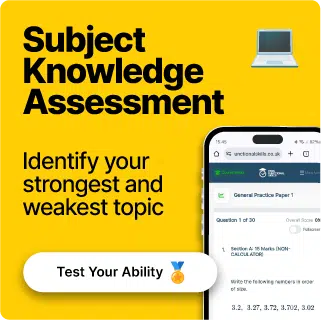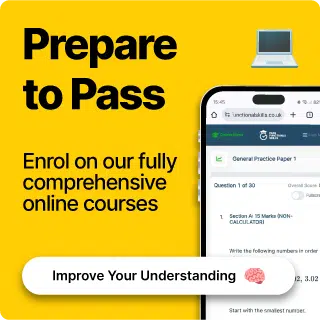Reading: Why Do Writers Write?
Why Do Writers Write?
There are many reasons why a writer will sit down, pick up a pen (or type on a keyboard) and write a text.
It is important to be able to identify what their reason is, in order to fully understand a text.
How do we find the reason?
When you begin to read a text, you will notice that the writer is trying to tell you something specific.
This something specific is the reason they are writing.
This reason fuels the text, in the same way that petrol fuels a car.
If the writer didn’t aim to tell you something specific, the text would not be fuelled and it would not move forward, or be developed further.
Types of fuel
There are many types of fuel that writers might use, let’s take a look at them now…
The fuel writers use to power their texts can include any of the following:

Follow Our Socials
Our Facebook page can put you in touch with other students of your course for revision and community support. Alternatively, you can find us on Instagram or TikTok where we're always sharing revision tips for all our courses.
Purpose is important!
The purpose of a text will determine what style of writing you will use as well.
When identifying the purpose, think:
- Who am I writing to?
- Why am I writing?
The style of writing may either be chatty or more professional, depending on who it is addressed to.
Remember, you should always use more serious language with people that you do not know!
Take a look at the following examples.
Chatty:
“This gym is the bees knees. I love the swimming pool and the sauna the best. However, it’s well pricey!”
Professional:
“This gymnasium is fantastic. The swimming pool and sauna are my favourite facilities. However, it is extremely costly.”
Did you notice the following examples of slang?
- “gym” is shortened version
- “bees knees” is more friendly
- “well pricey” is very colloquial
AND
Their more professional counterpart?
- “gymnasium” is the full version
- “fantastic” is a more professional adjective
- “extremely costly” is a more professional phrase
Key Fuels for your Level 1 Car
There are only 4 key types of fuel mentioned above that function a car at level 1.
These are the only fuels (aims) that you need to worry about at this stage.
Lets take a look in more detail…
Explanatory
Explanatory texts provide lots of information to the reader. These can be identified by seeing if the text contains facts and even technical language. For example:
“In the last century, temperatures have increased by 1°. The greenhouse effect determines this temperature on average”
= These are facts about global warming. It has used technical language (greenhouse effect) in order to give more information about the topic.
Persuasive
Persuasive texts often use emotive language in order to convince the reader to believe or feel something. For example:
“Something needs to be done about the rise of traffic as it is causing distress“
= The word ‘distress‘ will make the reader feel the emotion.
Descriptive
Descriptive texts often use many describing words. To identify these, look at whether a word is describing an event. For example:
“We went on a lovely walk to feed the beautiful swans”
= In other words, the walk was lovely and the swans were beautiful.
However, descriptive texts can also persuade! For example:
“The awful food made me ill”
= This is persuading the reader not to eat the food.
Instructive
Instructive texts usually tells the reader to do something. In other words, instruct! These are usually formed in bullet points, numbered points or in a clear structure. For example:
- Mix the milk, eggs and butter together
- Add in the dry ingredients
- Place in a baking tin
= These instructions are part of a recipe on how to bake a cake. It uses words like ‘mix‘ and ‘place‘ to tell the reader how to make it.
Examples: Aims
You might be reading a text which aims:
- To persuade the reader to accept their new building proposal.
e.g. A written business proposal
- To describe how the findings of a waste-disposal report could be applied.
e.g. An email
- To entertain the reader with their adventures from the weekend.
i.e. A text message
- To discuss the possibility of a fall in the stock market.
e.g. A newspaper article
- To explain to the reader why you would be perfect for a job role.
e.g. A cover letter
- To instruct the reader how to construct their new bookshelf.
e.g. An instruction manual
- To inform the reader how to get from the starting point of a journey to the end.
e.g. A written list of directions
- To advise the reader which charities to contact if they are affected by flooding.
e.g. A website article
- To mock a proposal to build a playground on a roundabout.
e.g. An open letter


Example: Level 1
What do you think is the aim of this text based on the 4 key aims?
…
The purpose of this text is to instruct as it is providing instructions on how to brush your teeth. Notice the numbered bullet points to create a step-by-step structure as mentioned before!
It also contains clear language in order to make it as understandable as possible for the reader.
Additional Resources
Exam Tips Cheat Sheet
FS Level 2Specification Points Covered
L2.18 – Follow an argument, identifying different points of view and distinguishing fact from opinion
L2.19 – Identify different styles of writing and writer’s voice
EL3.10 – Identify different purposes of straightforward texts
Reading: Why Do Writers Write? Worksheet and Example Questions
Reading: Why do Writers Write? L2
FS Level 2NewOfficial PFSReading: Why do Writers Write? L1
FS Level 1NewOfficial PFSRevision Products
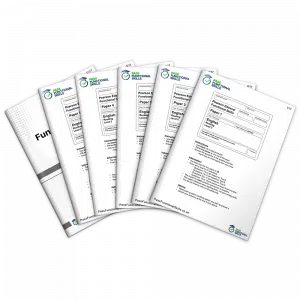
Functional Skills English Level 2 Practice Papers
This comprehensive set of 10 Functional Skills English Level 2 Practice Papers (5 reading papers + 5 writing) is a great way to revise for your upcoming reading and writing exams. These papers have been specifically tailored to match the structure, format and question types used by each of the main exam boards for functional skills English.
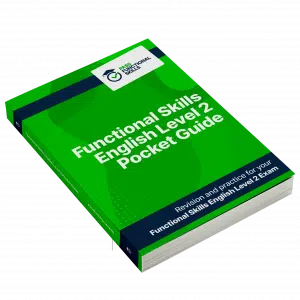
Functional Skills English Level 2 Book
Revise and practice for your functional skills English level 2 exam. All topics covered in this compact functional skills English level 2 book.
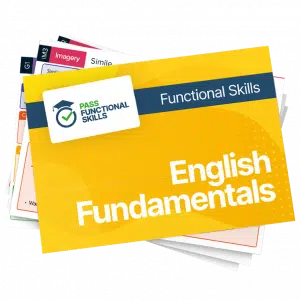
Functional Skills English Level 2 Revision Cards
Revise for functional skills English level 2, with these English level 2 fundamentals revision cards. Covering the building blocks of the essential areas of the level 2 exam.







